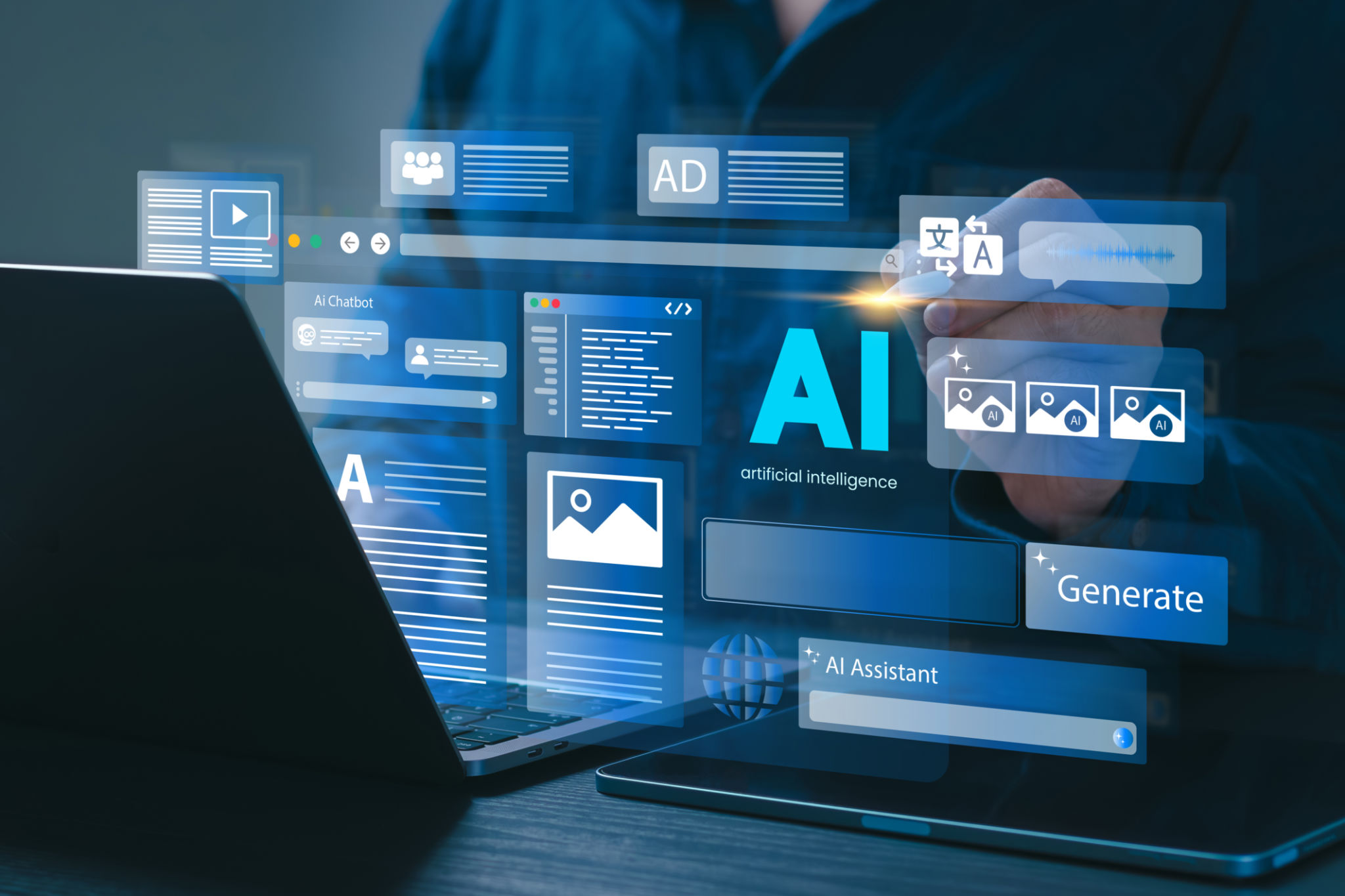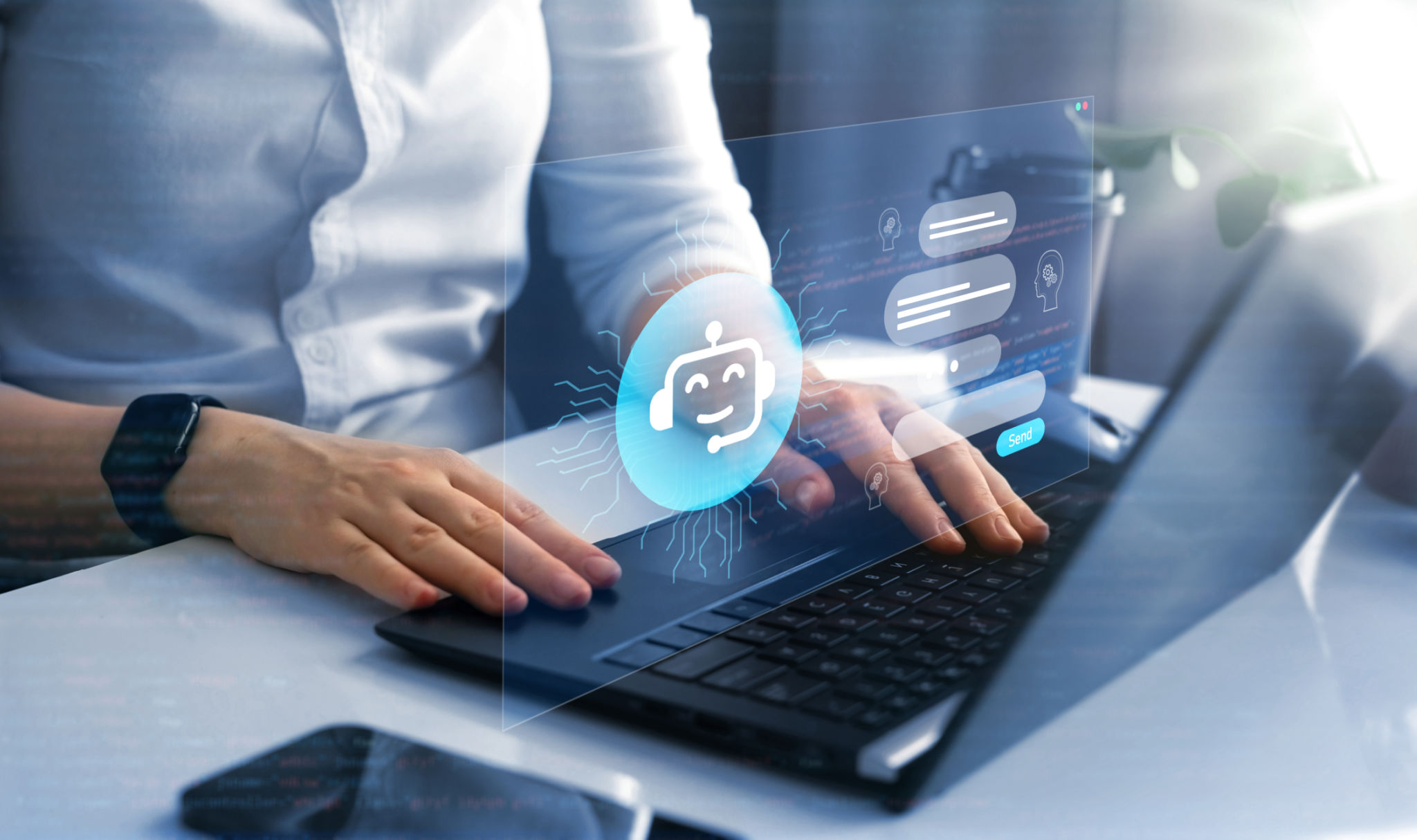AI in Marketing: Beyond Automation to Personalization
The Evolution of AI in Marketing
Artificial Intelligence (AI) has revolutionized various industries, and marketing is no exception. From automating routine tasks to delivering highly personalized content, AI technologies are reshaping how businesses interact with their customers. In the early stages, AI's primary role in marketing was to streamline processes, but today's focus has shifted towards creating personalized customer experiences.
As technology continues to evolve, marketers are discovering new ways to leverage AI beyond mere automation. The shift from automation to personalization represents a significant transformation in the marketing landscape, promising to enhance customer engagement and drive brand loyalty.

Understanding AI-Driven Personalization
AI-driven personalization involves using algorithms and data analytics to create tailored marketing experiences for individual consumers. This goes beyond just addressing customers by their first names in emails. It encompasses understanding consumer behavior, preferences, and purchase history to deliver content that resonates on a personal level.
By analyzing vast amounts of data, AI can predict what customers might be interested in before they even realize it themselves. This predictive capability allows brands to engage with their audience more effectively, offering products and services that are most likely to meet their needs.
Key Benefits of AI Personalization in Marketing
The benefits of incorporating AI-driven personalization in marketing strategies are numerous. Here are some key advantages:
- Enhanced Customer Experience: Personalized experiences make customers feel valued and understood, enhancing their overall satisfaction.
- Increased Conversion Rates: When marketing messages align with an individual's preferences and needs, conversion rates improve significantly.
- Stronger Customer Loyalty: Consistent personalization fosters a deeper connection between the brand and the consumer, leading to long-term loyalty.

Examples of AI Personalization in Action
Brands across various industries are already harnessing the power of AI for personalization. For instance, streaming services like Netflix use AI algorithms to recommend content based on viewing history and preferences. Similarly, e-commerce platforms implement AI to suggest products that align with a user's previous purchases and browsing behavior.
Moreover, AI-powered chatbots are also gaining popularity for providing personalized customer support. These bots can answer queries, guide users through purchase processes, and even offer product recommendations based on real-time interactions.
Challenges and Considerations
Despite its advantages, implementing AI-driven personalization is not without challenges. Privacy concerns are at the forefront, as consumers become increasingly aware of how their data is used. Companies must ensure they are transparent about data collection processes and comply with regulations such as GDPR.
Additionally, achieving true personalization requires high-quality data and sophisticated algorithms. Businesses need to invest in advanced technology and skilled personnel to manage and interpret this data effectively.

The Future of AI in Marketing
As AI technology continues to advance, its role in marketing will only grow more prominent. Future advancements may include even more refined personalization techniques, real-time data processing for instant insights, and seamless integration across multiple platforms.
The potential of AI in marketing is vast, offering exciting opportunities for brands to connect with their audiences on a deeper level. As businesses continue to innovate and adapt, the focus will likely remain on enhancing personalization to meet the evolving expectations of consumers.
